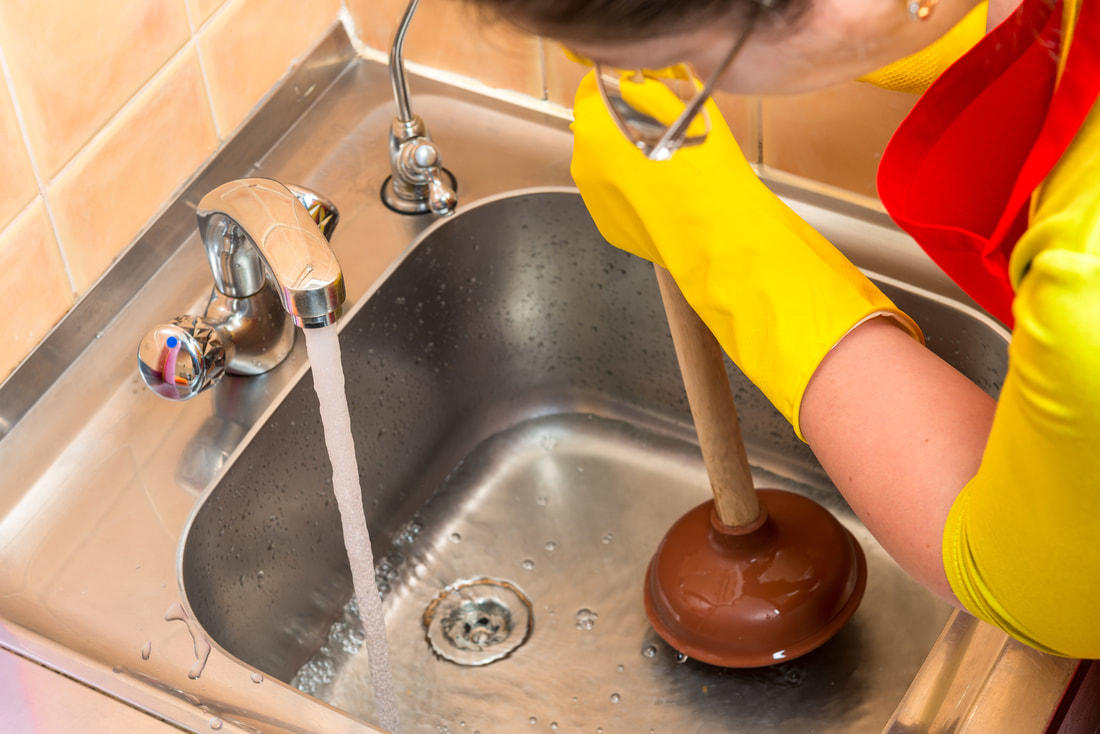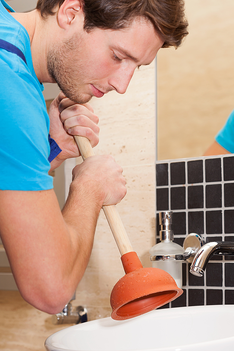Ways to Perfect Plungers and Drain Cleaner: Professional Guidance
Ways to Perfect Plungers and Drain Cleaner: Professional Guidance
Blog Article
They are making a number of great points about How to Unclog Your Sink with a Plunger in general in this article which follows.

Intro
Appropriate maintenance of household drains pipes is necessary for stopping blockages and ensuring smooth water circulation. Among the key devices in every house owner's toolkit is the plunger, alongside numerous drainpipe cleaners designed to tackle persistent blockages efficiently. This article checks out just how to use bettors and drainpipe cleansers efficiently to keep your drains pipes moving freely.
Section 1: Comprehending Bettors
Sorts of Plungers
There are numerous types of plungers available, each developed for different kinds of drains pipes and blocks. One of the most typical types consist of cup plungers, flange plungers, and accordion bettors.
Just How Plungers Work
Plungers service the concept of developing stress and suction to remove blockages. When effectively used over a drainpipe, they develop a vacuum that can pull out debris or break up blockages.
Choosing the Right Plunger
Selecting the appropriate bettor relies on the sort of drainpipe and the nature of the obstruction. Cup bettors are optimal for sinks and tubs, while flange plungers are much better suited for commodes due to their layout.
Typical Mistakes with Plungers
Preventing these blunders makes certain efficient plunging: incorrect seal around the drainpipe, not enough pressure, and not clearing surrounding particles.
Area 2: Making Use Of Plungers Properly
Preparation
Prior to diving, make sure the bettor covers the drainpipe entirely and creates a limited seal. Clear any kind of noticeable particles around the drainpipe opening.
Strategy
Beginning with mild diving motions to build suction. Rise stress slowly, utilizing a constant rhythm. Repeat as needed until the drain gets rid of.
Fixing Tips
If diving doesn't function, try changing the seal, using petroleum jelly for a better seal, or utilizing a different sort of plunger.
Area 3: Understanding Drain Cleaning Company
Types of Drainpipe Cleaning Company
Drain cleaners can be chemical or chemical. Chemical cleansers make use of solid chemicals to liquify blockages, while enzymatic cleaners use natural enzymes to break down organic matter.
How Drainpipe Cleaning Company Job
Chemical cleaners react with obstructions to liquify them, while chemical cleaners break down organic products like hair and oil without hurting pipes.
Safety and security Factors to consider
Constantly use gloves and eye security when making use of chemical drain cleansers. Ensure adequate air flow and comply with producer instructions thoroughly.
Eco-Friendly Alternatives
Take into consideration using vinegar and cooking soft drink or enzyme-based cleaners for eco-friendly alternatives that are safer for pipelines and the setting.
Section 4: Utilizing Drainpipe Cleaners Properly
Application Techniques
Put chemical cleaners straight right into the drainpipe opening. Allow them to help the advised time prior to flushing with warm water. Enzymatic cleaners ought to rest over night.
Precautions
Prevent blending various sorts of cleansers, as this can produce harmful fumes. Never ever make use of chemical cleansers combined with a bettor, as spilling can occur.
Handling Stubborn Clogs
For persistent obstructions, take into consideration making use of a pipes serpent or calling an expert plumbing to avoid damage to pipelines.
Verdict
To conclude, understanding how to make use of plungers and drain cleansers successfully is necessary for maintaining healthy plumbing systems. By picking the right tools and strategies, house owners can tackle small clogs and protect against major pipes issues down the line.
5 Steps on How to Use a Plunger Effectively
Creating a Seal: Place the rubber cup of the plunger firmly over the toilet drain hole to create an airtight seal. This seal is crucial to prevent air from escaping and ensure effective plunging.
Plunge Gently: Gently press the plunger down to compress the air inside without causing splashing. This careful action sets the stage for effective unclogging without creating a mess.
Maintaining Pressure: Consistently apply pressure to the plunger while pushing and pulling it up and down. This sustained pressure generates the force needed to dislodge the clog.
Breaking the Clog: Continue plunging until you feel the clog release. Look for the water to start draining, indicating successful removal of the blockage.
Flushing and Cleaning: After clearing the clog, flush the toilet to confirm it's working properly. Clean the plunger with warm, soapy water and disinfect it for future use to maintain hygiene.
Additional Tips on How to Correctly Use a Plunger
if you encounter resistance, add some water to the bowl to create better suction;
check the plunger for any rubber cracks to ensure it's in good condition;
exercise patience and persistence, as certain clogs might need multiple attempts.
Mistakes to Avoid when Using Toilet Plunger
avoid using excessive force, as it may damage the toilet;
don't rush the process; take your time to ensure a proper seal and pressure;
never use a plunger if you've recently used chemical drain cleaners
Conclusion
Mastering the art of how to properly use a plunger is a valuable skill for every homeowner. By employing the correct techniques, you can effectively address clogs and ensure your toilet functions smoothly. Patience, persistence, and proactive in maintaining your plunger's hygiene are key to success in this endeavor.
Armed with these skills and principles, you can confidently handle plumbing issues as they arise, promoting a well-functioning and hygienic home environment.
https://homealliance.com/blogs/how-to-effectively-use-a-plunger-the-ultimate-guide

Application Techniques
Put chemical cleaners straight right into the drainpipe opening. Allow them to help the advised time prior to flushing with warm water. Enzymatic cleaners ought to rest over night.
Precautions
Prevent blending various sorts of cleansers, as this can produce harmful fumes. Never ever make use of chemical cleansers combined with a bettor, as spilling can occur.
Handling Stubborn Clogs
For persistent obstructions, take into consideration making use of a pipes serpent or calling an expert plumbing to avoid damage to pipelines.
Verdict
To conclude, understanding how to make use of plungers and drain cleansers successfully is necessary for maintaining healthy plumbing systems. By picking the right tools and strategies, house owners can tackle small clogs and protect against major pipes issues down the line.
5 Steps on How to Use a Plunger Effectively
Creating a Seal: Place the rubber cup of the plunger firmly over the toilet drain hole to create an airtight seal. This seal is crucial to prevent air from escaping and ensure effective plunging. Plunge Gently: Gently press the plunger down to compress the air inside without causing splashing. This careful action sets the stage for effective unclogging without creating a mess. Maintaining Pressure: Consistently apply pressure to the plunger while pushing and pulling it up and down. This sustained pressure generates the force needed to dislodge the clog. Breaking the Clog: Continue plunging until you feel the clog release. Look for the water to start draining, indicating successful removal of the blockage. Flushing and Cleaning: After clearing the clog, flush the toilet to confirm it's working properly. Clean the plunger with warm, soapy water and disinfect it for future use to maintain hygiene. Additional Tips on How to Correctly Use a Plunger
if you encounter resistance, add some water to the bowl to create better suction; check the plunger for any rubber cracks to ensure it's in good condition; exercise patience and persistence, as certain clogs might need multiple attempts. Mistakes to Avoid when Using Toilet Plunger
avoid using excessive force, as it may damage the toilet; don't rush the process; take your time to ensure a proper seal and pressure; never use a plunger if you've recently used chemical drain cleaners Conclusion
Mastering the art of how to properly use a plunger is a valuable skill for every homeowner. By employing the correct techniques, you can effectively address clogs and ensure your toilet functions smoothly. Patience, persistence, and proactive in maintaining your plunger's hygiene are key to success in this endeavor.
Armed with these skills and principles, you can confidently handle plumbing issues as they arise, promoting a well-functioning and hygienic home environment.
https://homealliance.com/blogs/how-to-effectively-use-a-plunger-the-ultimate-guide

As a passionate reader on Here's How to Correctly Use a Toilet Plunger, I assumed sharing that excerpt was important. Please set aside a second to share this article if you appreciated it. Kudos for your time. Come back soon.
Detail Report this page